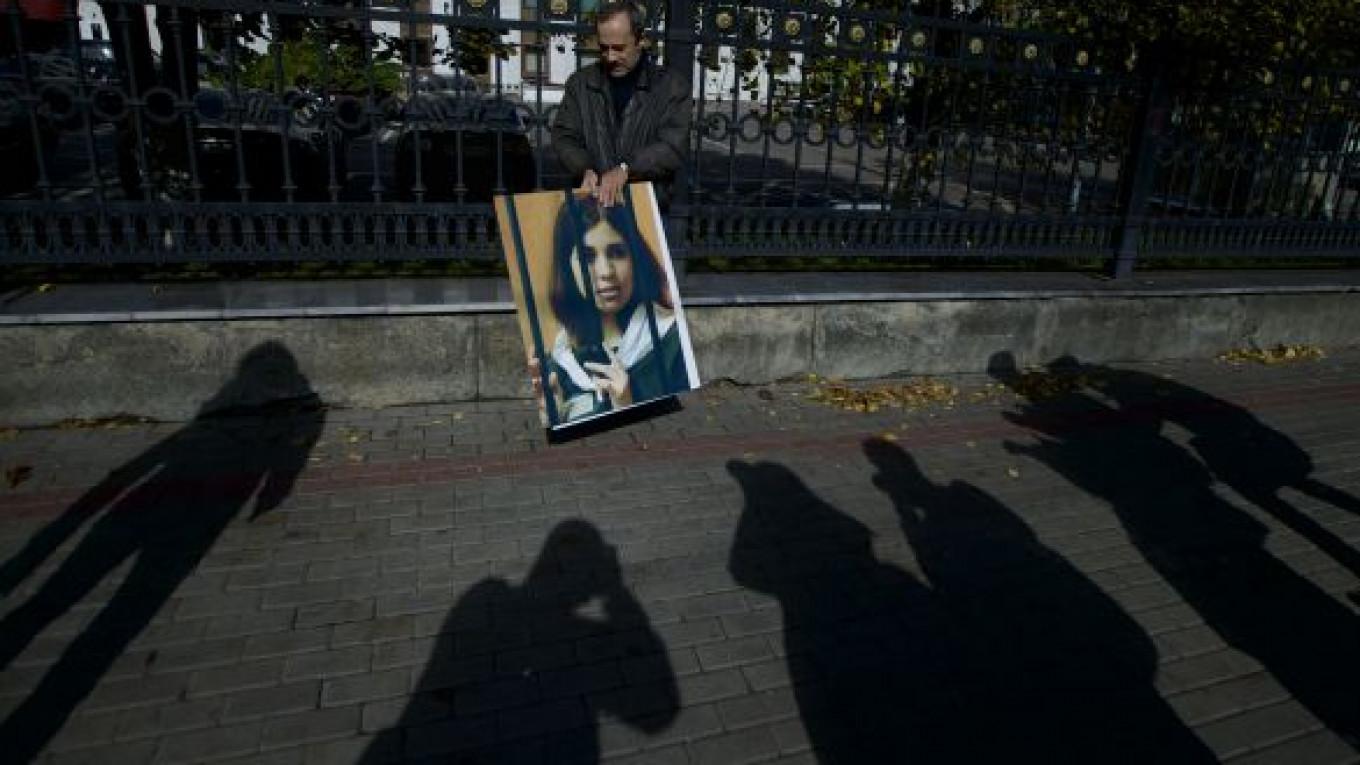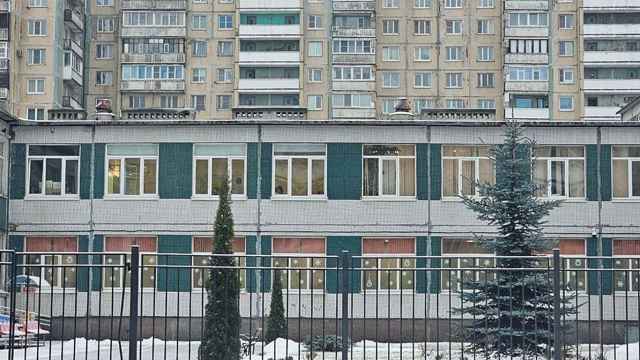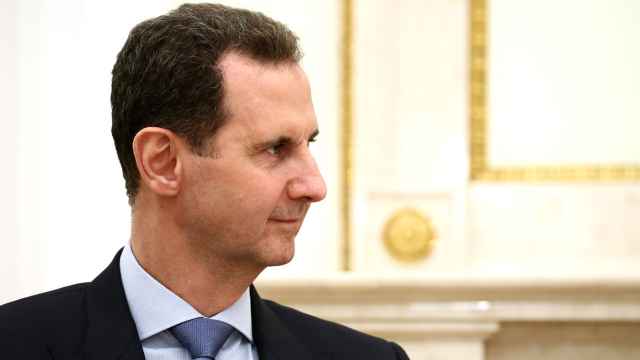A jailed member of punk band Pussy Riot was hospitalized Friday after going on a hunger strike to protest prison conditions, but her condition was not clear, her husband said.
Nadezhda Tolokonnikova was admitted to the hospital at the prison where she is serving a two-year term for a protest against President Vladimir Putin in Russia's main Orthodox Christian cathedral, Pyotr Verzilov said.
Verzilov said the acting head of the prison had described Tolokonnikova's condition as "horrible" but had given no further details. He also said prison officials would not show him documents about her transfer to hospital or allow her lawyers to visit.
On Sunday, Tolokonnikova's lawyers said they had not been able to contact her since her hospitalization, Interfax reported.
They also said they had no information about her condition.
The administration of the prison could not immediately be reached for comment, and prison service employees in the remote Mordovia region declined to comment.
Tolokonnikova, 23, announced Monday that she was starting a hunger strike to protest against "slave labor" at penal colony no. 14, where she is serving her sentence, and that she had received a death threat from a senior prison official.
She said inmates were forced to work up to 17 hours a day, deprived of sleep and subjected to collective punishment and violence from senior inmates, enforcing order in a system reminiscent of the Soviet-era Gulag forced labor camps.
Prison authorities dismissed her accusations that the jail is run in violation of Russian law and human rights standards.
Abuse Claim
Earlier Friday, Verzilov gave a statement from Tolokonnikova in which she said prison guards had taken drinking water away from her isolation cell and one had roughly grabbed her and held her in place by her shoulders.
The Mordovia branch of the prison service said the drinking water had been replaced by warm boiled water in accordance with doctor's orders and that Tolokonnikova had refused to let medics check her body for bruises.
Tolokonnikova and two other band members were convicted of hooliganism motivated by religious hatred for a February 2012 protest in which they burst into Christ the Saviour Cathedral and prayed to the Virgin Mary to rid Russia of Putin.
Kremlin critics say their trial was part of a crackdown on dissent since Putin started a third term at the Kremlin in May 2012.
Pussy Riot and other Kremlin critics accuse Putin of fostering too close ties with the resurgent Russian Orthodox Church and discriminating against sexual minorities as part of the wider crackdown.
Tolokonnikova is due for release in March. Another jailed Putin critic, former oil tycoon Mikhail Khodorkovsky, praised her Friday for speaking out about prison conditions and said she should not lose sight of her imminent freedom.
"I know that you have got family and friends waiting for you on the outside. You have done a great job, you have really stuck it out, and you are continuing to stick it out," Khodorkovsky wrote in a letter circulated Friday.
"All I would ask is that you carefully weigh the costs and benefits of what you're trying to achieve with the impact it will have on your health or even your life. I am confident that the intended effect of bringing attention to the problem has already been achieved."
A Message from The Moscow Times:
Dear readers,
We are facing unprecedented challenges. Russia's Prosecutor General's Office has designated The Moscow Times as an "undesirable" organization, criminalizing our work and putting our staff at risk of prosecution. This follows our earlier unjust labeling as a "foreign agent."
These actions are direct attempts to silence independent journalism in Russia. The authorities claim our work "discredits the decisions of the Russian leadership." We see things differently: we strive to provide accurate, unbiased reporting on Russia.
We, the journalists of The Moscow Times, refuse to be silenced. But to continue our work, we need your help.
Your support, no matter how small, makes a world of difference. If you can, please support us monthly starting from just $2. It's quick to set up, and every contribution makes a significant impact.
By supporting The Moscow Times, you're defending open, independent journalism in the face of repression. Thank you for standing with us.
Remind me later.






